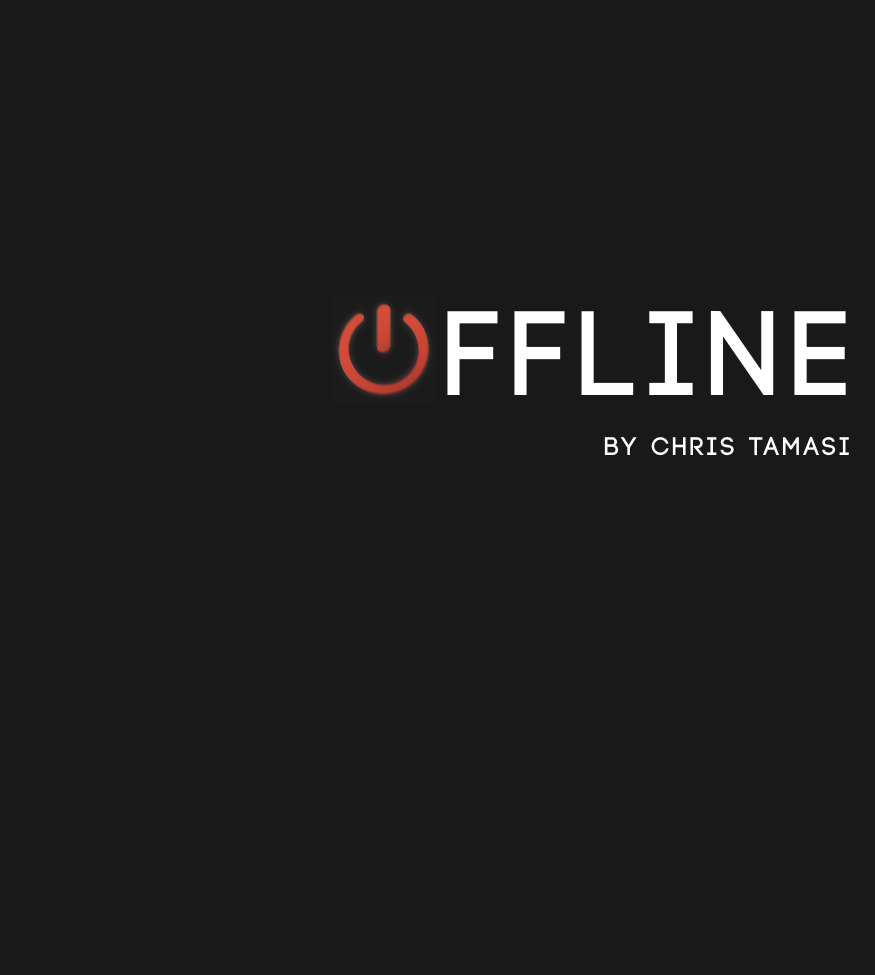

Senior English major Chris Tamasi recently finished his inventive senior project — a manuscript for a children’s book that touches on the impact of modern technology on childhood imagination. I had the chance to sit down with Tamasi to speak about the notable accomplishment, the process that preceded it and his plans for the future of “Offline.”
“Offline” is a story about a young boy, Kyle, growing up in the 21st century — highlighting his struggle, but really a societal struggle, to find balance between imaginative and technological forms of entertainment.
Kyle grows up with his mother in an apartment complex that is not conducive to outdoor play or meeting new friends, so he relies heavily on gaming devices as a means of passing the time. Once Kyle moves to a more residential area, he meets an outdoorsy and adventurous next-door neighbor named Brendan. Brendan poses the simple question to Kyle: “Do you want to come outside and play?” But Kyle is reluctant to step outside his comfort zone and try something new.
Eventually, Kyle is persuaded to come outside. The boys overcome adversity through a series of backyard adventures guided by a map and compass, while Kyle learns to unlock his imagination as a means of entertainment and ultimately restore balance in his lifestyle between these two forms of play.
Q:What was your inspiration for the book?
A: My sophomore summer, I spent a significant amount of time studying gamification techniques used within the video game industry as a means of capturing the attention of their players. I was interested in how to extract that same successful model and apply it to reality by using our imaginations. I had a special afternoon with my little brother Kyle through BBBS where we created our own combat game and used our imaginations as a form of play. I realized that within a technologically driven society, our innate abilities as humans to use our minds as a means of entertainment was still possible. I then worked last summer with the Nelson Brothers juvenilia collection and studied the boys’ methods of play during the 19th century in the backwoods of rural New Hampshire. All of these experiences inspired me to write the story — I felt in the bottom of my heart that this story was prevalent and worth sharing.
Q: What the writing process was like?
A: I began formulating ideas for the story this past summer while working as a Mellon Student Research Fellow on campus. I developed a storyline and characters and began writing the story this fall in my notebook. My process is pretty standard — I write lines of poetry and actively edit each line until the quatrain is metrically sound with strong end rhymes.
I met with my adviser weekly to edit what I had written. I would then edit previously written work before continuing to write new material.
Daniel and I are both very meticulous, so the editing process was not completed until we felt each word and quatrain served a purpose.
Q: Any future plans for “Offline” ?
A: My dream is to have this story published and brought to life through the work of an illustrator. I have begun researching the children’s literature market and hope to reach out to various publishers and editors to see if my story is worth a damn. I would love for this book to someday end up on the shelves in bookstores and in the hands of children everywhere!
Q: In terms of your work with fiction, would you like to write another children’s book, or experiment with another genre?
A: As an English major, I focused primarily on poetry and children’s literature. This project blended both my passions and it is certainly something I would like to pursue further. I have a couple more ideas for children’s books — so we’ll see. I also write personal poetry, but that is the extent of my creative fictional writing. Creative writing is always something I will carry with me.
Q: Did you go through the thesis process for the book?
A: My project began as a thesis, but was later pursued as a senior project within a special topics course which worked out perfectly in regards to the pace of the project and what my overall goals were for the piece. I only wanted to finish this story for me. I am just happy to have it in manuscript form to share with friends and family and hope that someday the story’s message will impact young lives, as well as parents.
Q: What are your plans for formatting it in the case of publication — particular illustrations?
A: I plan on submitting the manuscript to publishers and hope they will match my story with an illustrator if it were to ever get to that point. The illustrations would help bring the imaginative aspects of this story to life and really drive the message home. Illustrations are a major aspect of any children’s book, so I would love to discuss my own ideas with an illustrator and work with them to create something special.